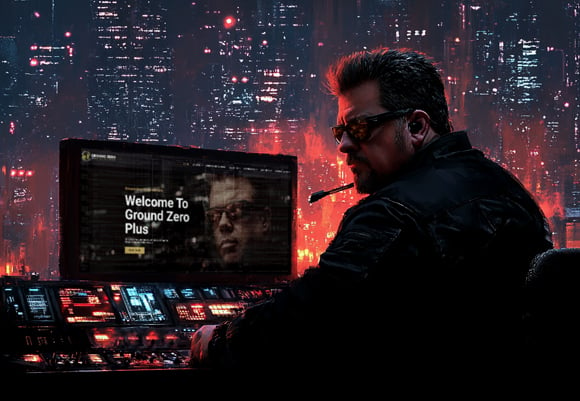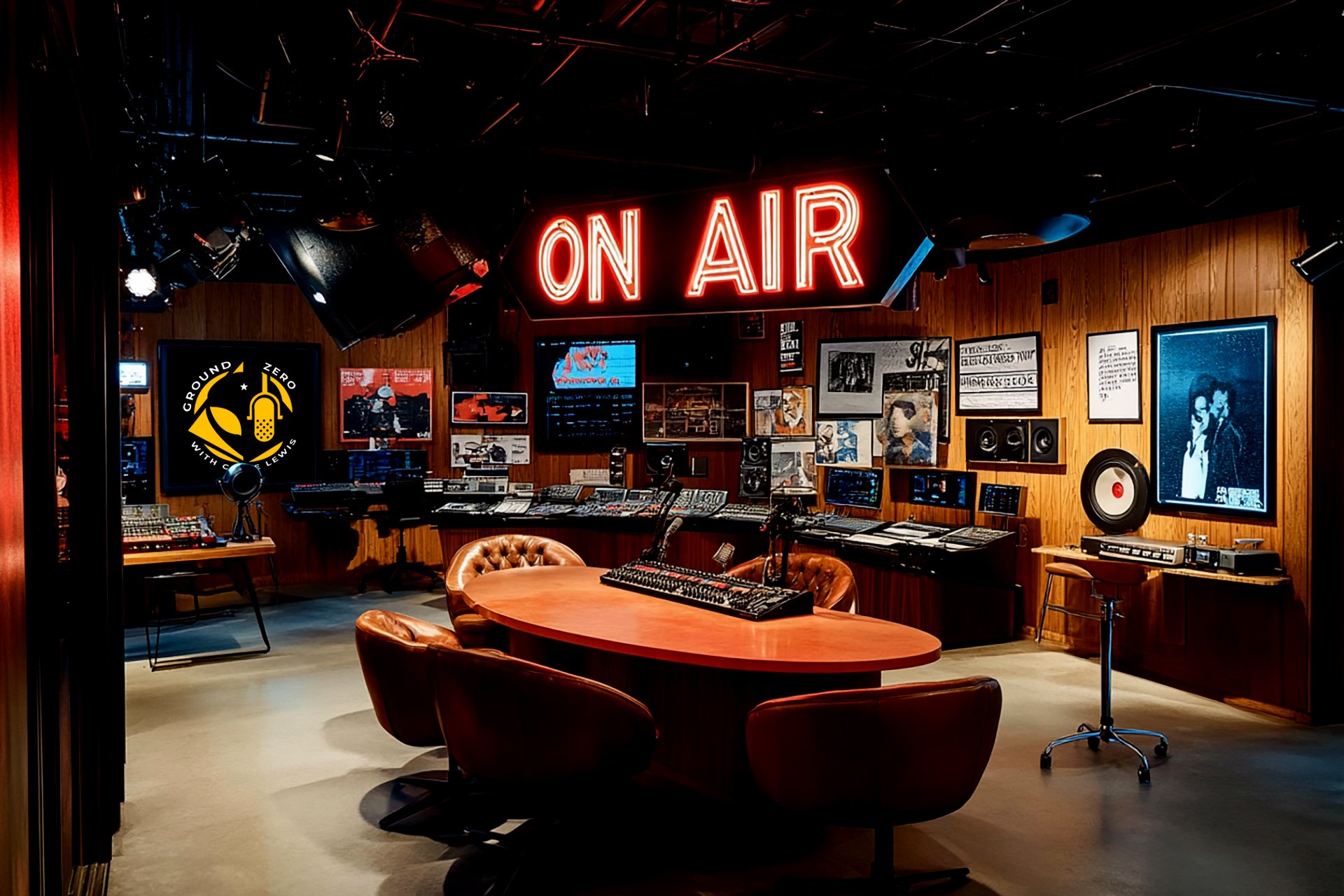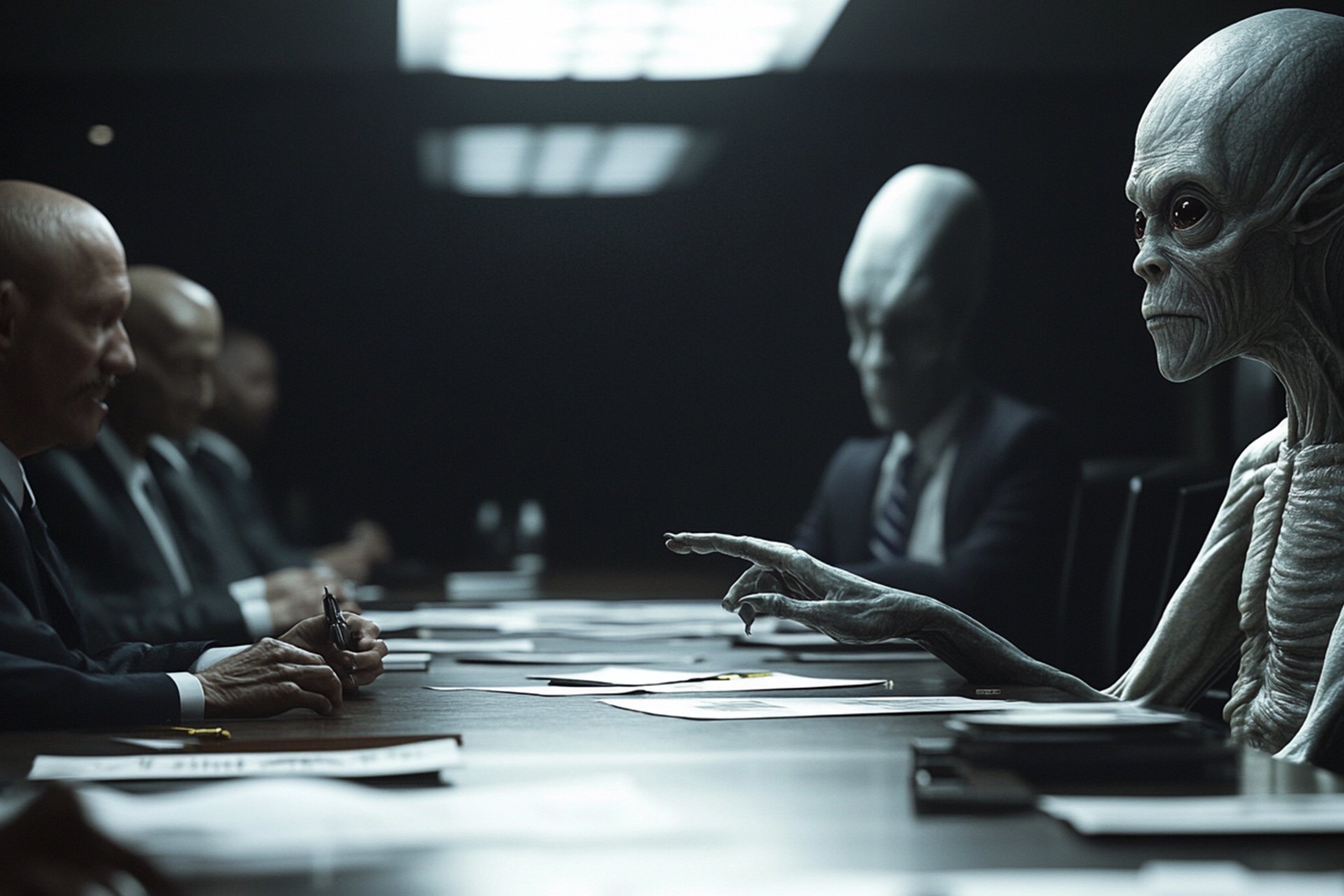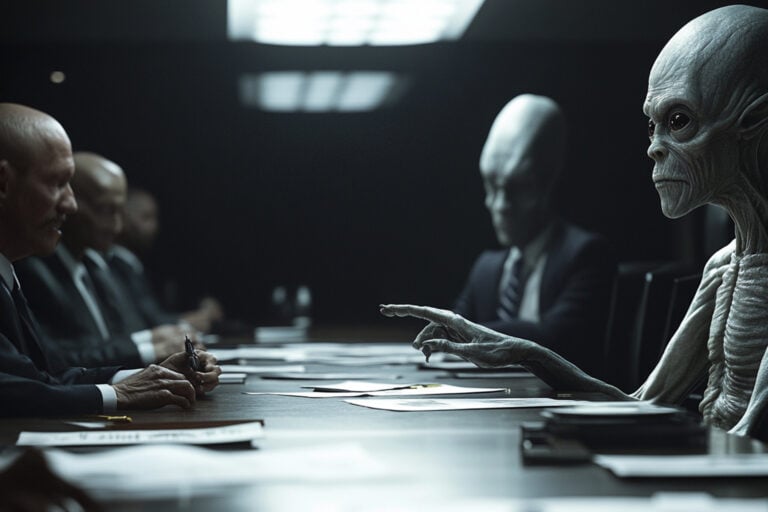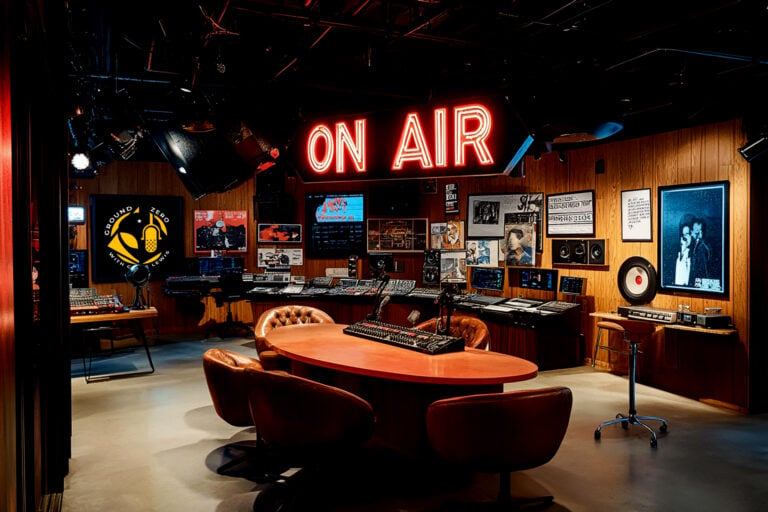Clyde Lewis: Defying The Odds in Broadcast History
In the volatile landscape of talk radio, where shows emerge and vanish with alarming regularity, Ground Zero with Clyde Lewis stands as a testament to staying power and authentic connection with audiences. For nearly three decades, this program has not only survived but thrived, carving out a unique space in the broadcast industry where mainstream narratives meet alternative perspectives.
The Origins: From Local Phenomenon to National Voice
Ground Zero’s journey began in the mid-1990s, when Clyde Lewis—a theater-trained voice talent with a background in journalism—launched what was initially a local Portland radio program. The timing proved fortuitous, coinciding with America’s growing fascination with conspiracy theories, paranormal phenomena, and millennial anxiety.
What distinguished Ground Zero from the beginning was Lewis’s approach. Unlike many in the alternative media space, he brought journalistic rigor to topics often dismissed as fringe. His theatrical background allowed him to present complex material with compelling narrative structure, while his skeptical nature prevented the show from descending into uncritical acceptance of every theory.
This balancing act—entertaining while informing, questioning while investigating—created a formula that would prove remarkably durable through changing times and technologies.
Surviving the Radio Revolution
As traditional radio faced unprecedented challenges from digital competitors, industry experts predicted the demise of long-form talk programming. Ground Zero not only weathered these changes but expanded its reach, growing from regional syndication to national distribution across major markets.
The program’s resilience can be attributed to several factors. First was Lewis’s early recognition that content needed to exist beyond terrestrial radio. Ground Zero embraced podcasting and streaming before many competitors, ensuring listeners could engage with content on their terms.
Second was the show’s unique content ecosystem. While mainstream news cycles chased daily headlines, Ground Zero maintained a distinct focus on connecting current events to historical patterns, psychological undercurrents, and alternative explanations. This approach created a listening experience that remained relevant regardless of the day’s news.
Perhaps most importantly, Ground Zero cultivated genuine relationship with its audience—collectively known as the “Lounge Lizards”—treating listeners as participants rather than passive consumers. This community-building approach fostered loyalty that transcended the typical broadcaster-audience dynamic.
Navigating Controversial Waters
Any show examining controversial topics inevitably faces backlash, and Ground Zero has weathered its share of criticism from both mainstream media and regulatory bodies. What’s remarkable is how the program has maintained its exploratory spirit while adapting to evolving broadcast standards.
Lewis has perfected the art of asking questions that others won’t, while doing so in ways that keep the program viable in increasingly restricted broadcast environments. This ability to navigate the narrow space between censorship and sensationalism has become a hallmark of Ground Zero’s approach.
The show has repeatedly been vindicated when topics initially dismissed as conspiracy theories—from government surveillance programs to pharmaceutical industry practices—were later confirmed through mainstream reporting. These vindications have built credibility over time, even among skeptics.
The Technical Evolution
Behind the scenes, Ground Zero has consistently pushed technical boundaries. The show pioneered sophisticated remote broadcasting setups long before pandemic conditions made them common. Its production values—from sound design to audio quality—have consistently exceeded industry standards for talk programming.
As corporate consolidation homogenized much of radio’s sound, Ground Zero maintained its distinctive audio identity. Lewis’s rich baritone became instantly recognizable, but equally important was the program’s immersive soundscape, which transformed listening from passive consumption to experiential participation.
Cultural Impact Beyond Ratings
While ratings success has sustained Ground Zero’s broadcast presence, its cultural impact extends far beyond traditional metrics. The program has introduced generations of listeners to concepts and perspectives absent from mainstream discourse. It has provided platform for whistleblowers, researchers, and eyewitnesses whose accounts might otherwise remain unheard.
Ground Zero has influenced popular culture in subtle but significant ways, with themes and topics explored on the show later appearing in television, film, and other media. Its archives serve as a time capsule of alternative thinking across three decades—a valuable resource for understanding how non-mainstream perspectives evolved through Y2K anxiety, post-9/11 uncertainty, economic crises, and technological transformation.
Looking Forward: The Next Chapter
As Ground Zero approaches the milestone of thirty years in broadcasting, the program finds itself in a media landscape transformed almost beyond recognition. Yet the hunger for authentic voices and genuine investigation has never been stronger. In an era of algorithm-driven content and corporate narrative control, Ground Zero’s independent spirit resonates with growing audiences seeking alternatives to packaged perspectives.
The program continues to expand its digital footprint while maintaining its broadcast roots—a hybrid approach that honors radio tradition while embracing technological innovation. New initiatives in video content, interactive experiences, and community engagement suggest that Ground Zero’s evolution continues apace.
What remains unchanged is the core commitment that has sustained the program through broadcasting’s most turbulent era: the belief that audiences deserve more than official narratives, that questioning is patriotic rather than subversive, and that the unexplained deserves serious consideration rather than dismissal.
In an industry defined by transience, Ground Zero with Clyde Lewis has achieved the rarest of broadcasting accomplishments—longevity with relevance. As mainstream media increasingly acknowledges the validity of topics once relegated to “conspiracy theory,” the program’s approach seems less alternative and more prescient—the work of a broadcaster who was simply decades ahead of his time.

